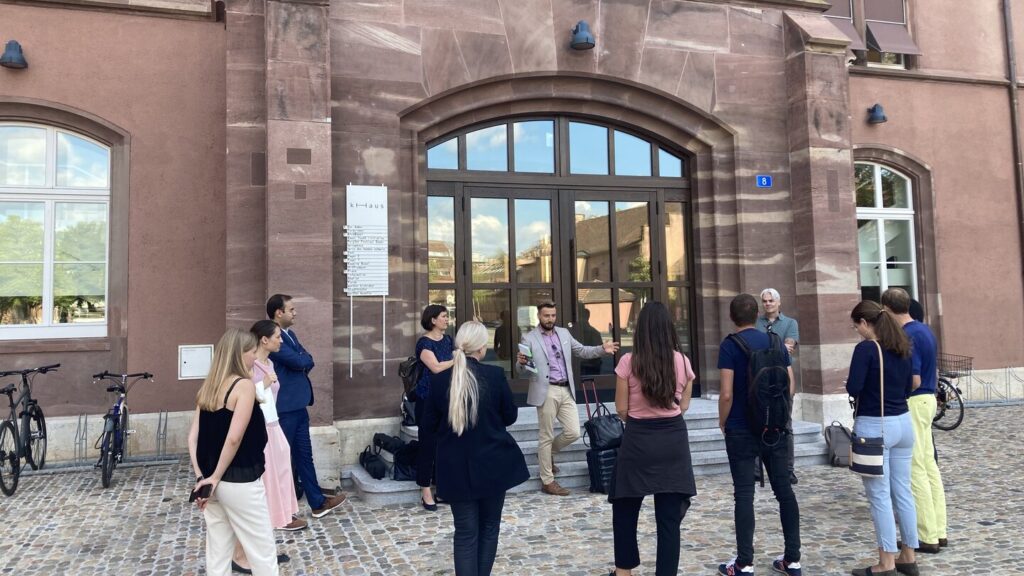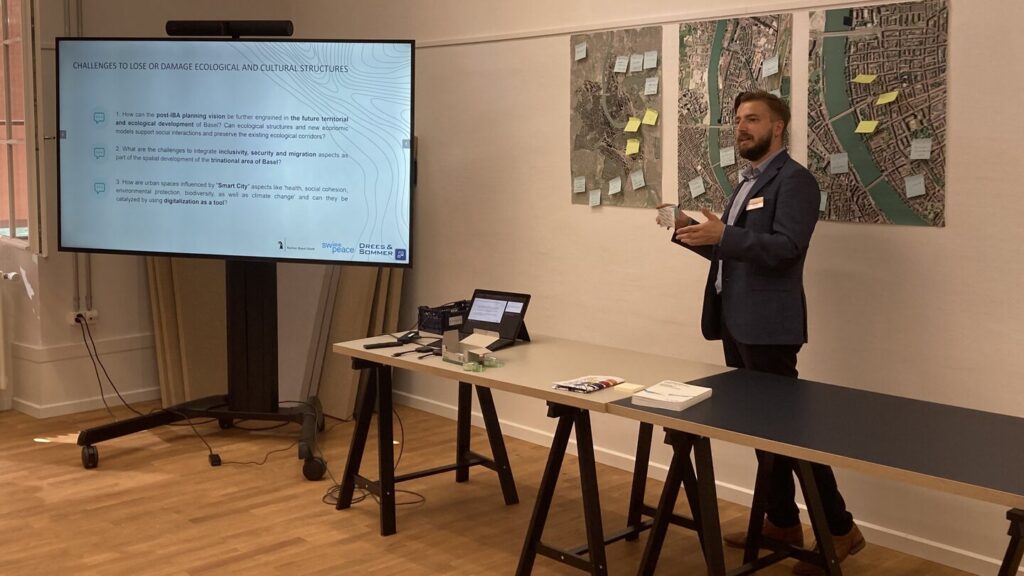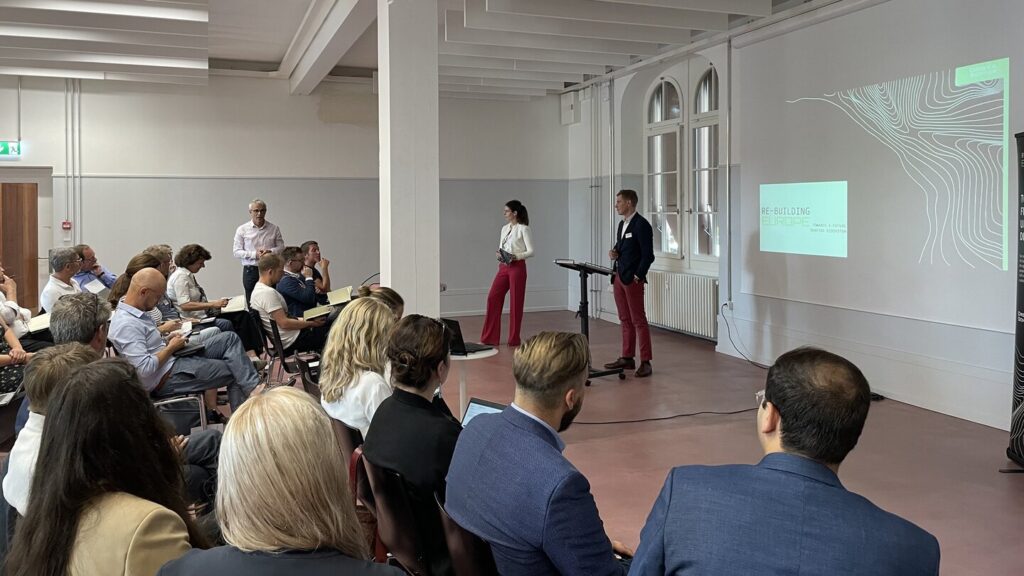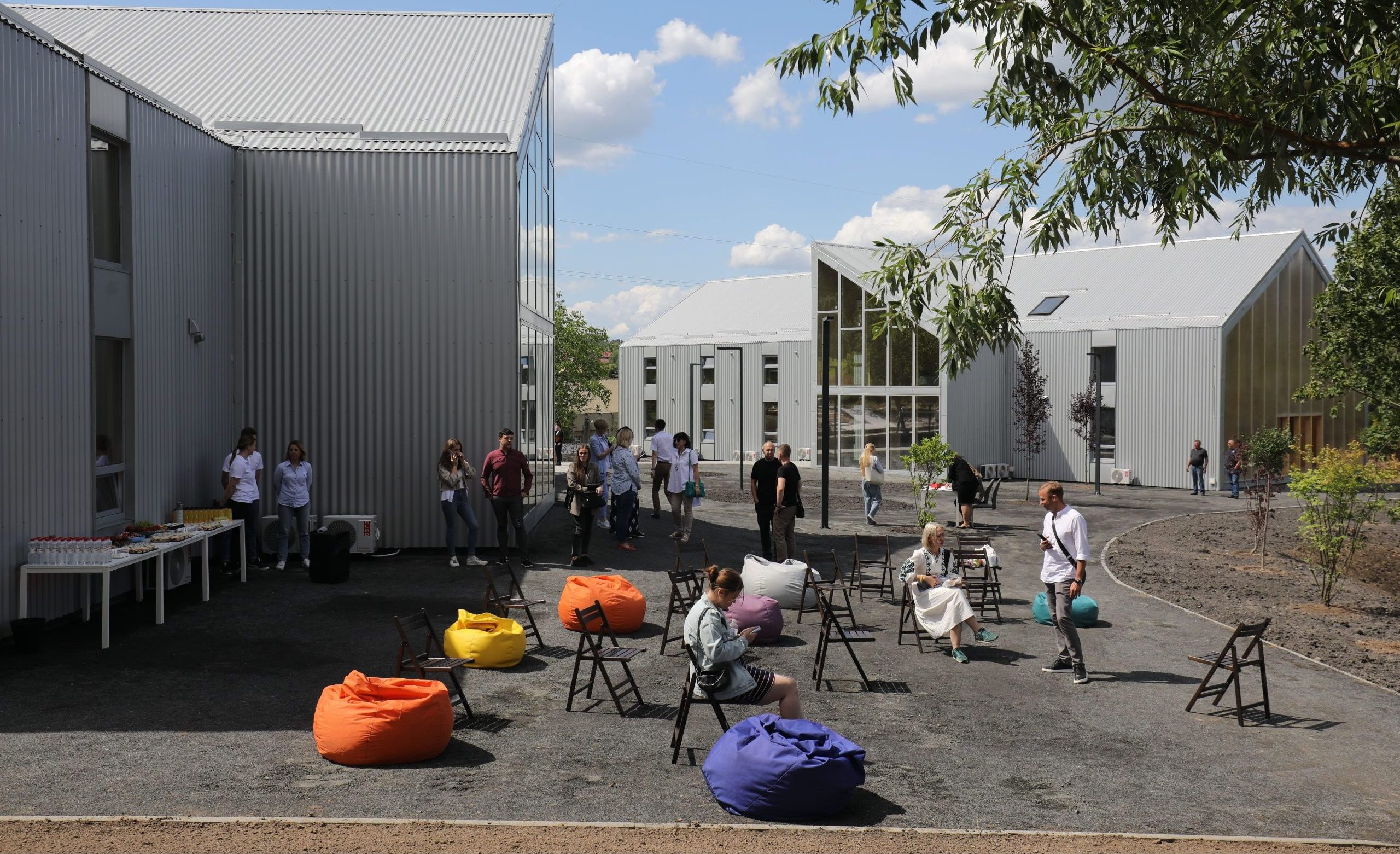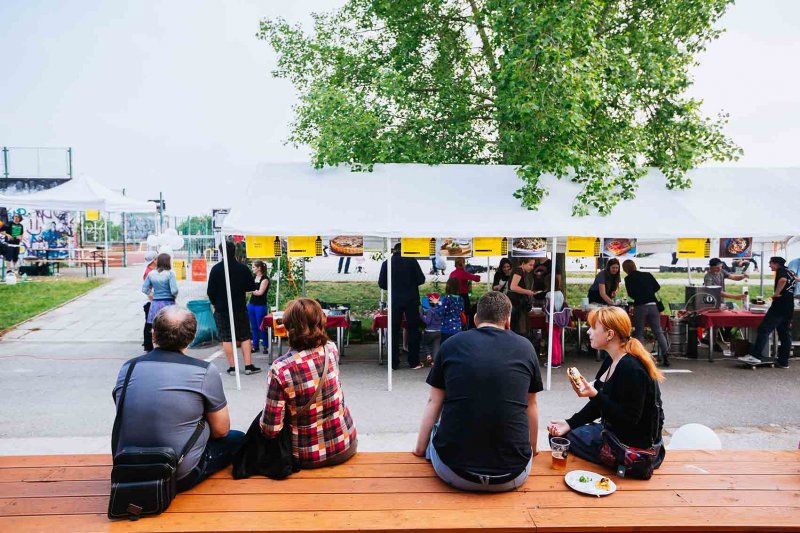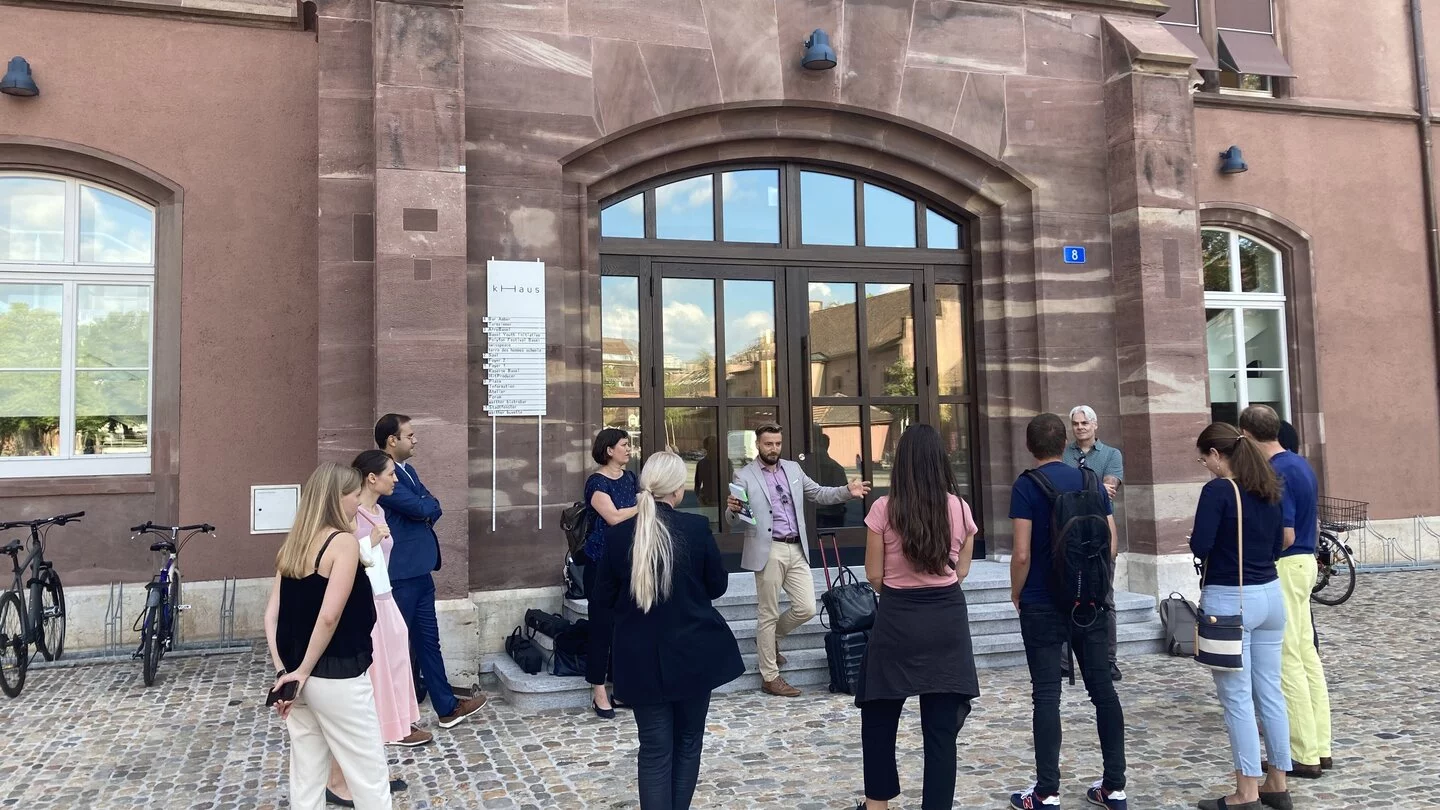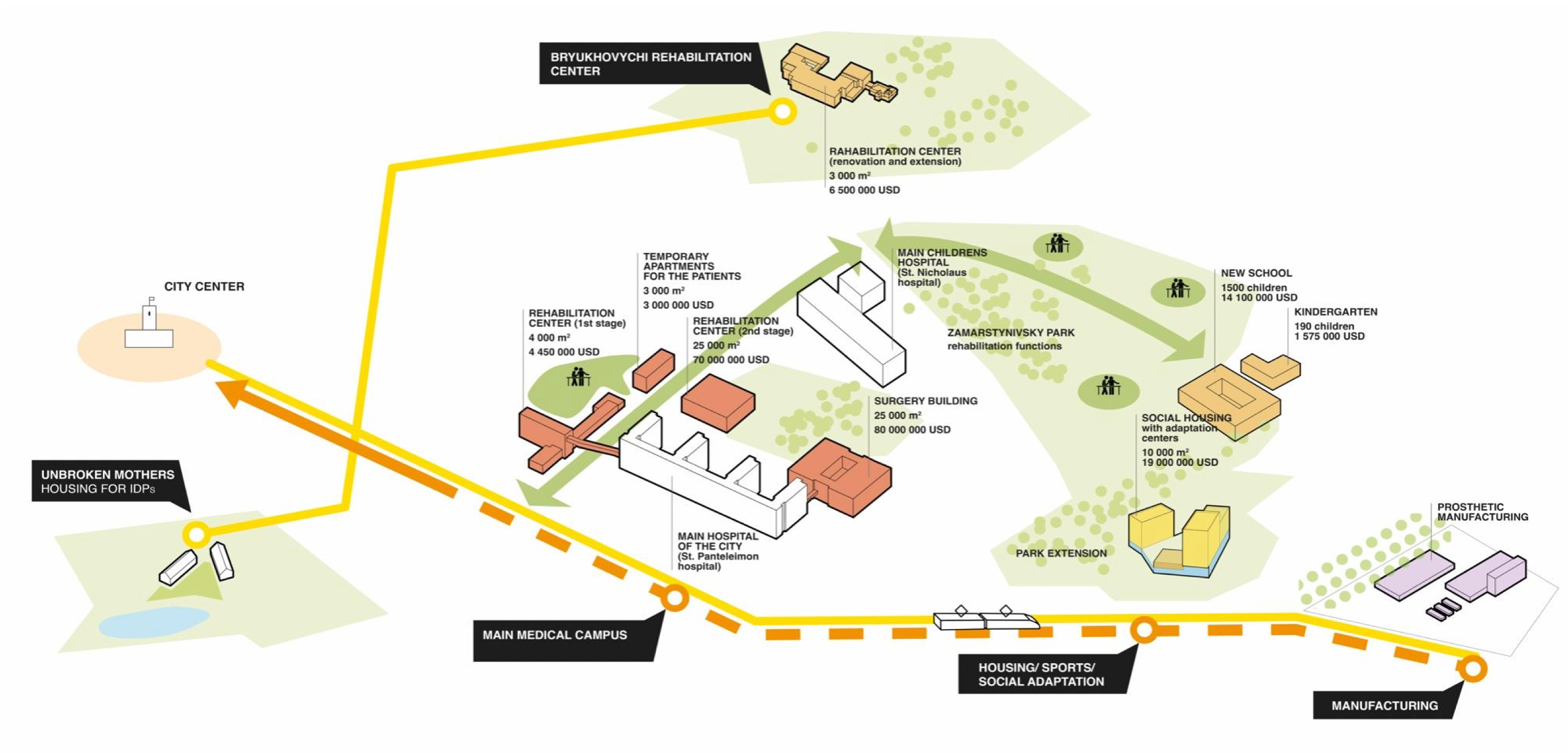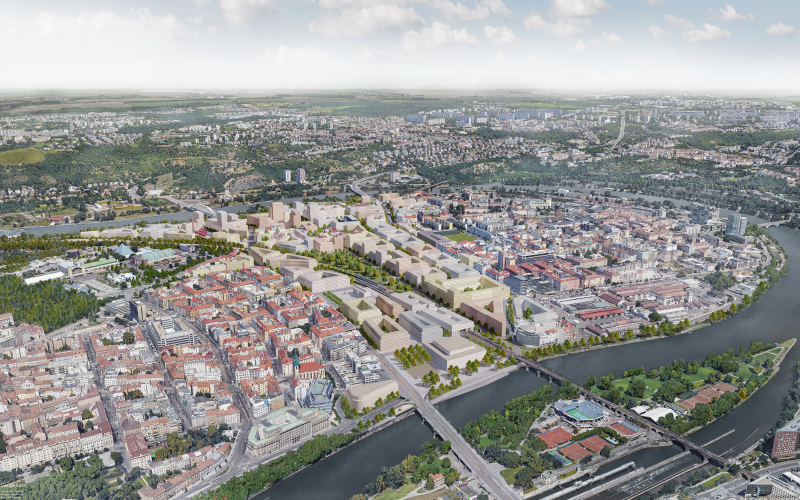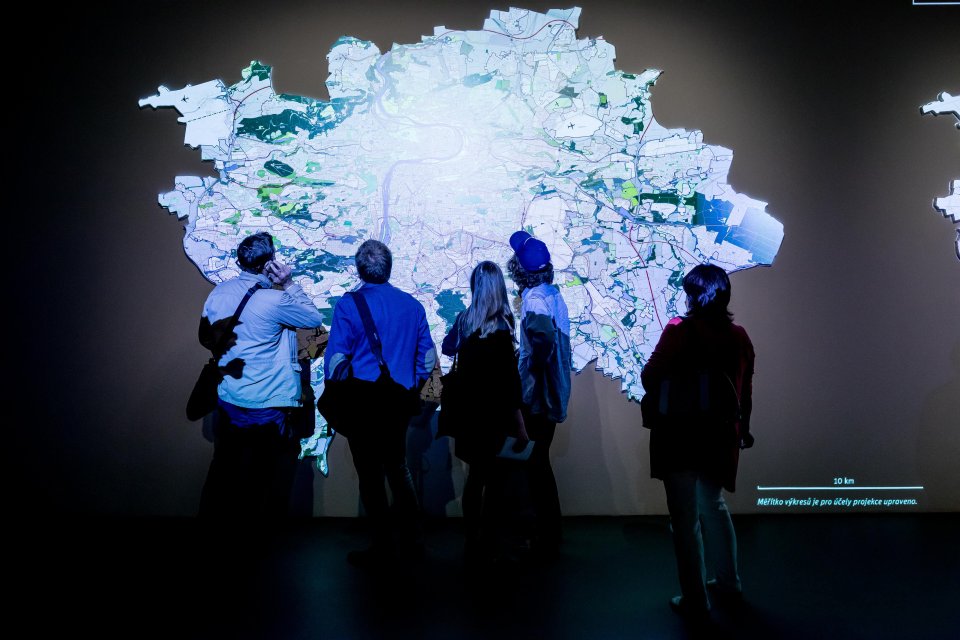
Neighbourhood-scale intervention projects in urban areas are part of an urban policy addressing issues on the community scale. These involve the introduction of infrastructure projects that improve living conditions.

City/regional-scale interventions, often in the form of urban plans or strategic projects, can bring about substantial urban transformation. They showcase the implementation of extensive urban expansion or compact development efforts.
Knowledge Workshop on Smart and Sustainable Cities in Sarajevo
On 16 June 2025, Sarajevo became a vibrant hub for regional dialogue and innovation as it hosted a one-day knowledge exchange workshop focused on sustainable and smart urban development. Organized by the OSCE in collaboration with Swiss partners from the Basel region, the event brought together city leaders, urban planners, and international experts to explore transformative strategies for future-proof cities.
Among the distinguished participants were Jasmin Ademović, Chairman of the City Council; his deputy Mirel Džehverović; Deputy Mayor Mirza Selimbegović; City Councilor Alen Girt; urban planner Haris Piplas; and Dr. Lukas Ott from Switzerland. Together, they examined three pioneering projects that reflect Sarajevo’s commitment to an inclusive, climate-resilient, and citizen-driven urban development.
The first session provided a comprehensive overview of the Toolbox framework, a strategic resource developed through previous workshops to support cities in navigating urban transformation and Participants engaged in a lively discussion on expectations and regional applicability, setting the tone for collaborative learning.
Followed by a presentation of the three pioneering projects from Sarajevo: The Climate Strategy of Sarajevo, developed under the EU Cities Mission with a Climate City Contract and data-driven planning tools; the participatory revitalization of the Breka Settlement through eco-friendly interventions; and the Urban Garden and Sensory Park, an inclusive space for children with developmental disabilities aligned with the city’s sustainability vision. These case studies sparked an exchange of best practices among participants, with discussions focusing on disaster preparedness, pollution, urban sprawl, and sustainable transportation.
In the afternoon, participants engaged in a World Café-style workshop, diving deeper into themes across regional, neighborhood, and district scales. Guided by questions on security, climate change, and digitalization, the roundtables fostered cross-city learning and generated actionable insights for future collaboration. The workshop concluded with a forward-looking session on next steps. Participants emphasized the importance of regional cooperation, capacity building, and integrating digital technologies into sustainable city concepts. Recommendations were made to expand the Toolbox with region-specific strategies and to continue fostering knowledge exchange across borders.
Overall Sarajevo’s commitment to smart and sustainable urban development was clearly on display, positioning the city as a leader in inclusive transformation. Through collaborative efforts and innovative thinking, the workshop laid the groundwork for resilient, citizen-centered cities across the region.
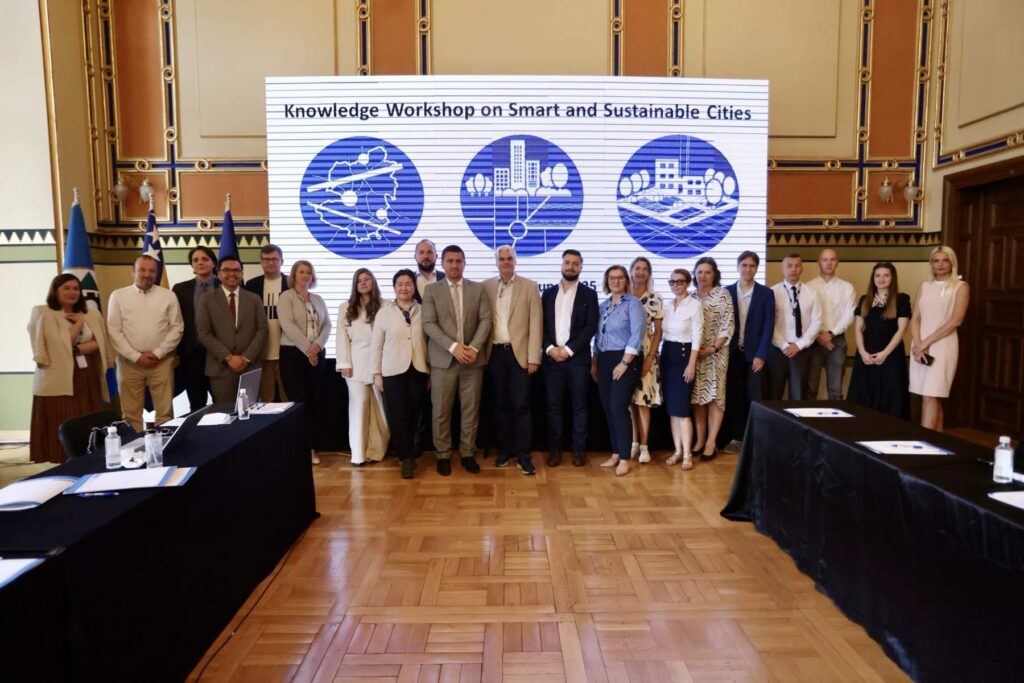
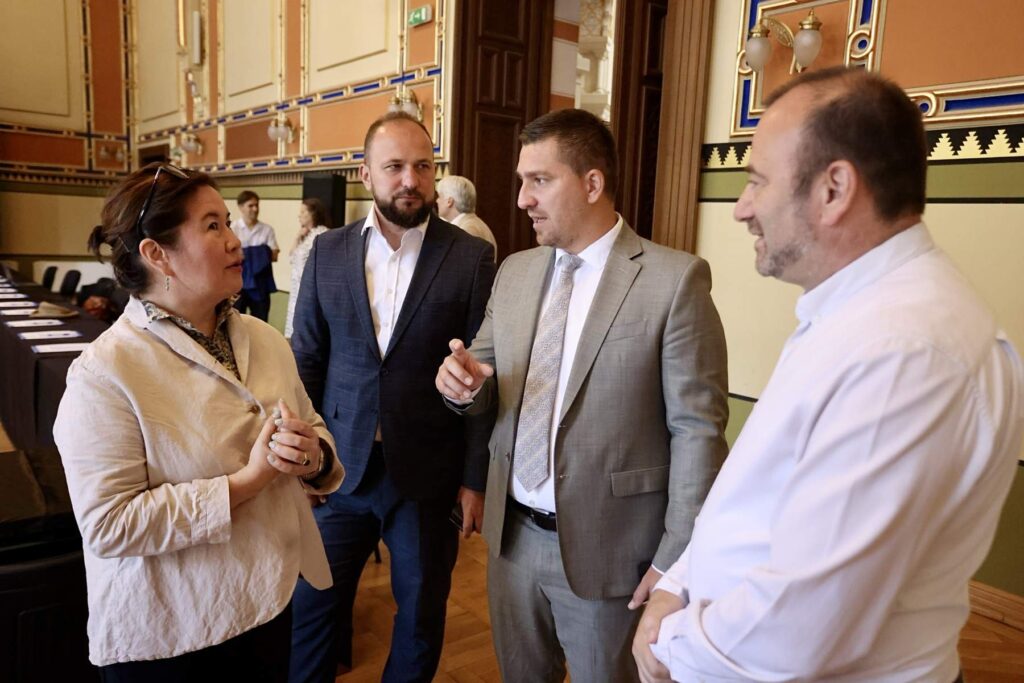
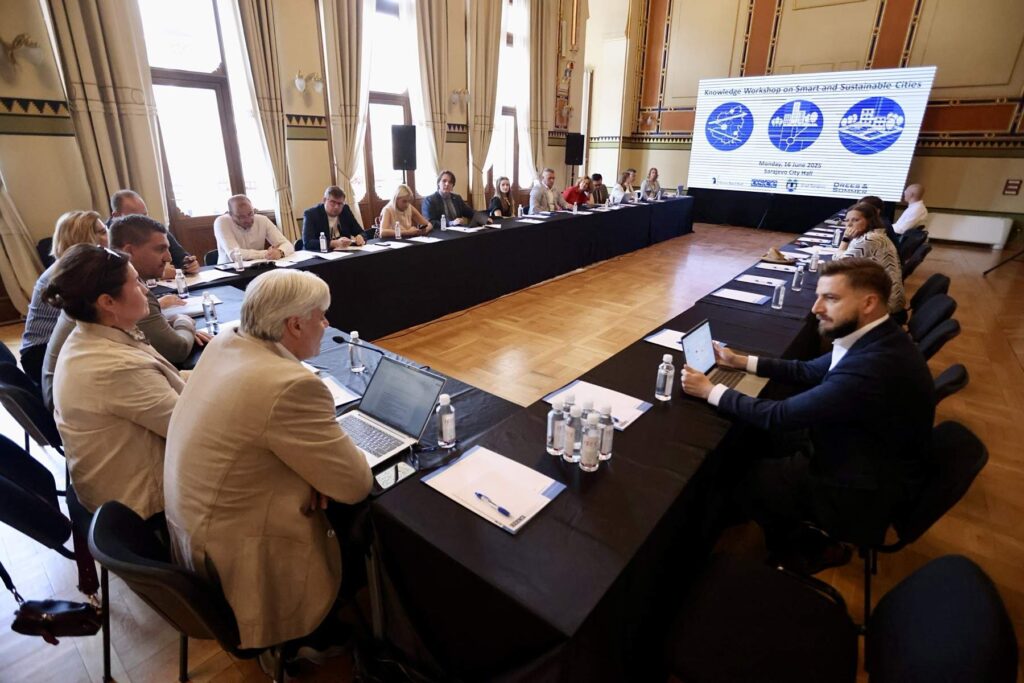
Ukraine Resilience Week
On 3 October 2024, Basel became a focal point for international dialogue and urban innovation during a public session held as part of Ukraine Resilience Week. Co-organized by the Urban Development Department of Kanton Basel-Stadt, the OSCE, IPR Prague, and Drees & Sommer – Urban and Infrastructure Solutions, with contributions from the Lviv City Institute, the event aimed to foster resilience and sustainable urban development across the OSCE region.
The session invited city representatives, architects, urban planners, and experts to engage with the Sustainability and Innovation Toolbox, a strategic framework designed to support cities in navigating complex urban challenges. Through interactive discussions and collaborative learning, participants explored innovative strategies to address economic, environmental, and social resilience.
The session highlighted urban resilience strategies from Basel, Prague, and Lviv. Lviv presented three standout initiatives: a flexible urban planning framework (Integrated Development Concept Lviv 2030), a maternal care and shelter program (Unbroken Mothers), and the transformation of a neighborhood into a medical innovation hub (Unbroken Ecosystem). These examples reflect Lviv’s commitment to inclusive and adaptive urban development.
Throughout the session, participants engaged in dynamic discussions, sharing best practices and exploring scalable solutions to common urban challenges. Topics ranged from disaster preparedness and sustainable infrastructure to social inclusion and digital innovation.
The event successfully reached a broad audience, encouraging inclusive dialogue and empowering cities to co-create and utilize digital tools for urban planning. By connecting diverse urban experiences, Ukraine Resilience Week reinforced the importance of regional cooperation and knowledge exchange in building sustainable cities.
Workshop at the Sustainable Days Basel
As part of the Sustainable Days in Basel on April 10, 2024, a public session was held to present the ‘Sustainable and Innovation Toolbox for Cities’. Organized by the OSCE in collaboration with Swiss partners from the Basel region, the event brought together representatives from various cities and institutions, including Valtteri Hirvonen from the Embassy of Finland, delegates from the City of Freiburg, and delegates from the City of Zurich.
Representatives from the cities of Prague, Lviv, and Basel each presented their three case studies, showcasing practical approaches to sustainable urban transformation.
Following the presentations, a vibrant discussion unfolded, and participants exchanged insights on urban governance structures, regulatory frameworks, and the financial and administrative conditions needed to initiate and scale sustainable projects. A key theme was the importance of adapting solutions to local contexts—recognizing that cities face unique challenges, especially regarding land ownership, regulations, and administrative capacity.
Despite these differences, the session emphasized the value of peer learning and face-to-face interaction to keep collaborative projects moving forward. The open dialogue fostered mutual understanding and inspired cities to explore new pathways for sustainable development.
The session successfully informed participants about the Toolbox, encouraged knowledge exchange, and motivated further engagement and laying the groundwork for expanding the network of cities committed to sustainable urban innovation.
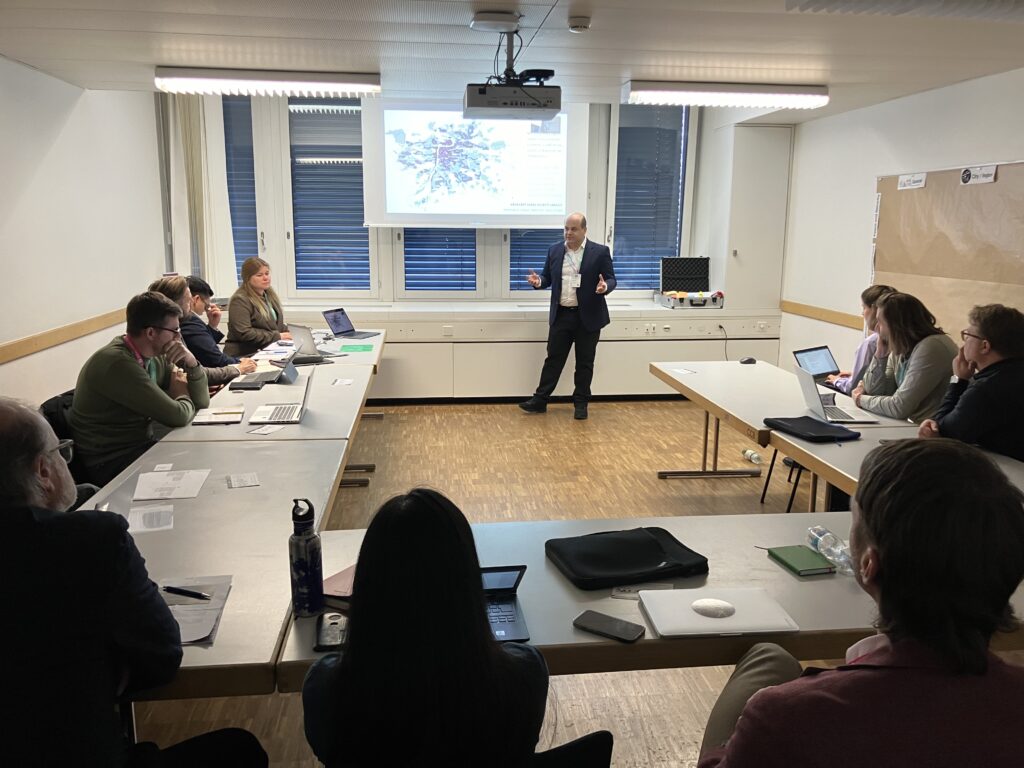
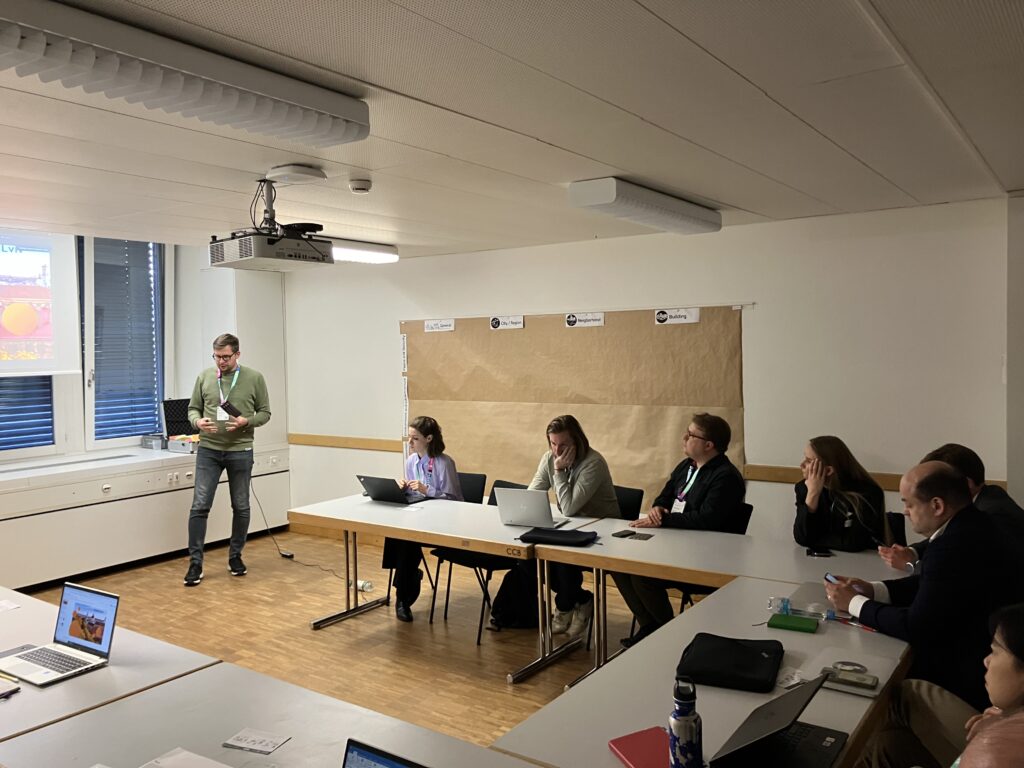
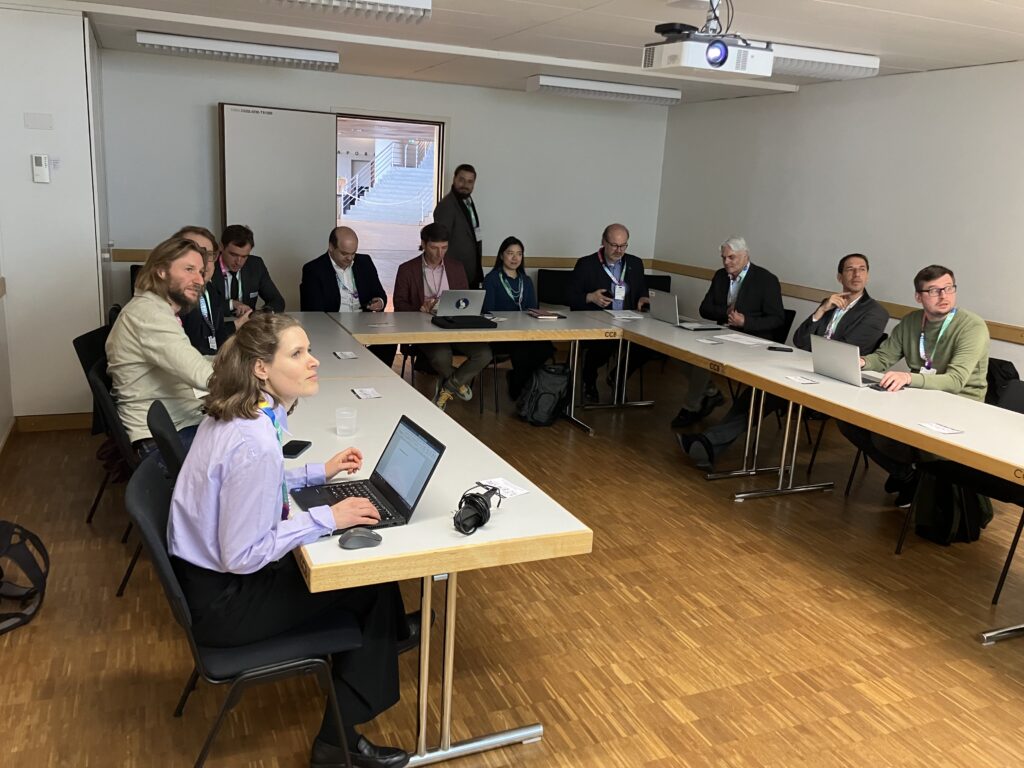
Smart Resilient Urban Development Knowledge Workshop in Prague
On September 15, 2023, in collaboration with the Institute of Planning and Development of the City of Prague (IPR), an international workshop was held in Prague. Together with institutional partners—including the City of Prague Magistrate, the OSCE, the Canton of Basel-Stadt, and the City Institute Lviv—the event brought together a diverse group of experts to explore innovative strategies for sustainable, inclusive, and digitally supported metropolitan planning.
The workshop was co-hosted by Jaromír Hainc from IPR and featured contributions from a broad consortium of professionals, including Saule Ospanova, André C., Lukas Ott, Drees & Sommer / Drees & Sommer Czech Republic, Maksym Terletsky, Dr. Haris Piplas, Lidiia Chyzhevska, Michael Beckert, Florian Langlotz, Martina Ščuka, and Anna E.
The event began with presentations of the case studies of Prague: the Metropolitan Plan as a strategic framework for urban development, the transformation of the Bubny railway yard into a flagship district, and the Vybíralka 25 Project, which exemplifies a new co-planning approach.
Based on these case studies, the discussion focused on sustainable urban transformation, recovery, and reconstruction in cities, with a strong emphasis on the methods, instruments, and networks available to urban stakeholders. The discussions highlighted the need to strengthen cities’ capacity to act, emphasizing cross-border collaboration and knowledge exchange as key drivers of sustainable urban transformation and recovery.
Furthermore, a roundtable discussion addressed the guiding question of how urban spaces are influenced by “Smart City” aspects such as health, social cohesion, environmental protection, biodiversity, and climate change—and how digitalization can catalyze these transformations. Experts shared recommendations for a practical toolbox to support cities in leveraging digital tools for resilience, inclusivity, and sustainability.
The workshop and the case studies from Prague illustrate the city’s commitment to integrating sustainability, digitalization, and community engagement into its urban agenda and underscored the critical role of international collaboration, knowledge sharing, and innovation in shaping the cities of tomorrow. By exchanging experiences and co-developing solutions, cities can better navigate the complexities of sustainable urban transformation and build more resilient, inclusive, and future-ready communities.
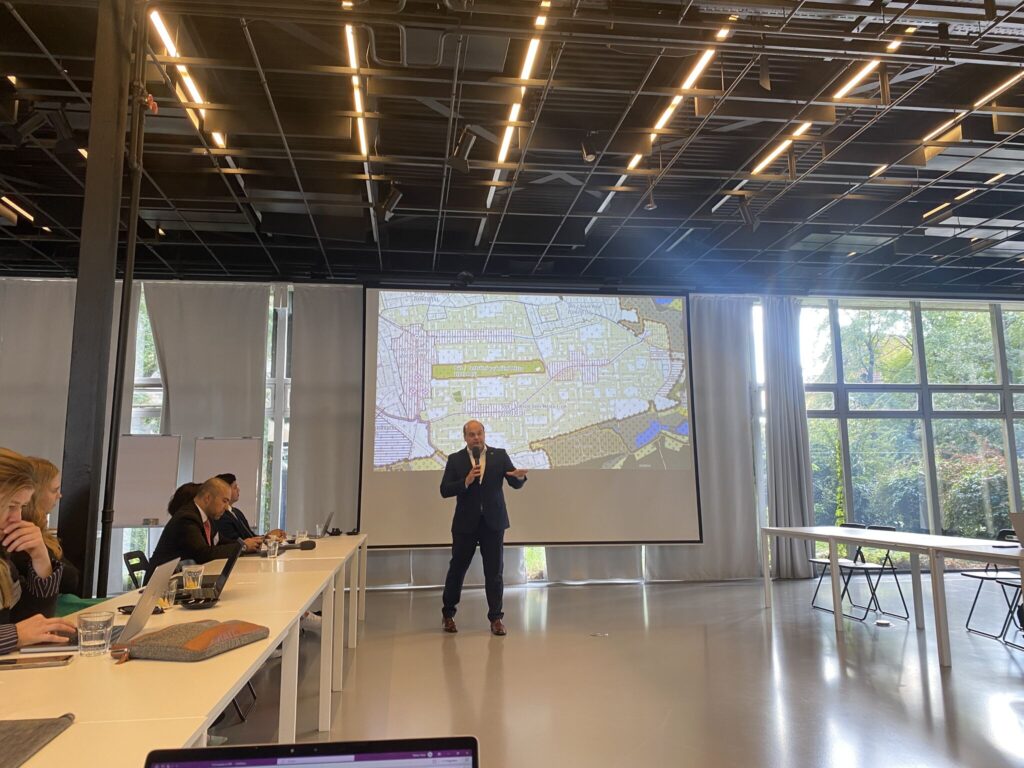
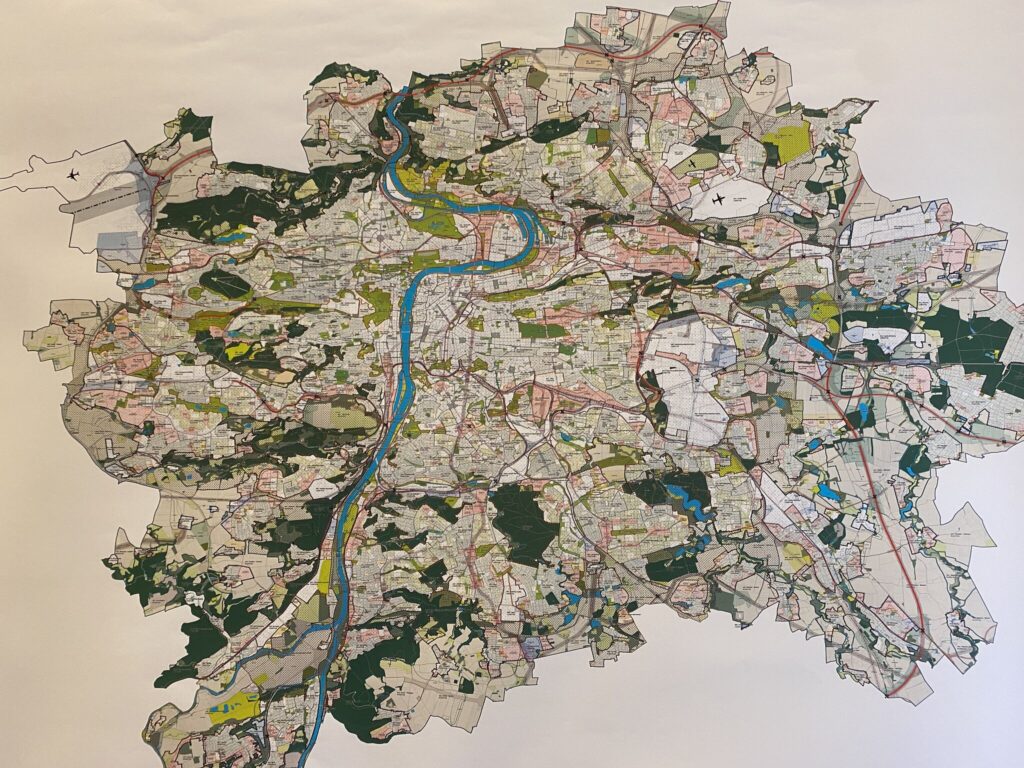
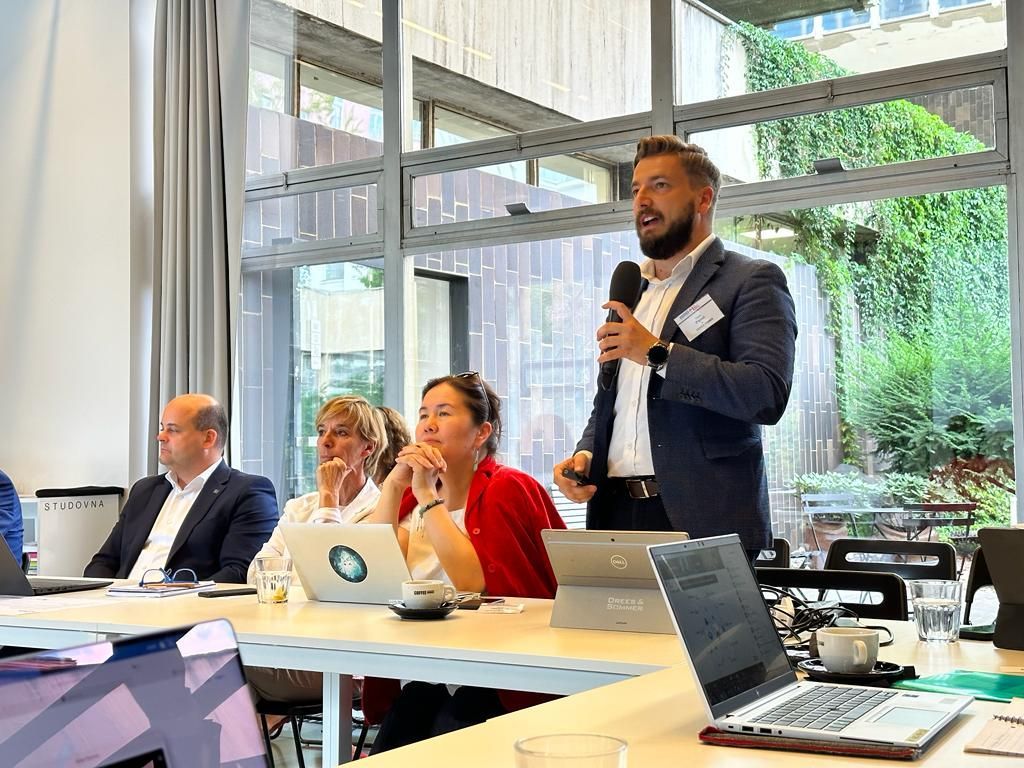
Reimagining Urban Futures: Smart, Inclusive, and Green Cities for a Secure Europe
On 28th and 29th August 2023, in collaboration with the Canton of Basel-City and swisspeace a two-day workshop as part of the Re-Building Europe conference was held. The event, held in Basel, focused on the theme of “Smart, Inclusive, and Green Cities for Peaceful and Secure European Societies.” A curated group of 28 experts convened to examine strategies for enhancing the safety, sustainability, and inclusivity of urban environments, using three case studies from Basel as the basis for discussion.
Among the distinguished participants were Lukas Ott, Head of Urban Development Basel, Canton Basel-City, Dr. Haris Piplas, Co-director Integrated Urban Solutions, Drees & Sommer, Elias Schäfer, Co-managing Director, schaefer | Hansen at Smart Regio Basel, Laurent Goetschel, Director of swisspeace and Professor of Political Science, University of Basel, Saule Ospanova, Senior Environmental Advisor, OSCE, Lidiia Chyzhevska, National Union of Architects, Ukraine, Jaime Font Furest, Director International Architecture Programs, La Salle University.
The first day commenced with a guided tour by Lukas Ott presenting the Urban Vision Basel 2050 – the city’s strategic framework for preserving cultural heritage, strengthening climate resilience, and promoting sustainability. This was followed by an exploration of the Klybeckareal, a former industrial site being transformed into a vibrant mixed-use neighborhood, illustrating Basel’s approach to urban regeneration. Concluding with a guided tour of the kHaus, a landmark project exemplifying adaptive reuse.
On the second day, the kHaus transformation was revisited during an impulse lecture by Elias Schäfer. The kHaus, once military barracks, now exemplifies urban regeneration by fostering cultural, social, and creative industries, driving local economic growth and integration through resident participation and sustainable practices.
Dr. Haris Piplas subsequently provided a lecture on Basel’s international context as a city situated at the intersection of three countries, with a particular focus on the International Building Exhibition (IBA). The session also included a deeper examination of the Urban Vision Basel 2050 and the ongoing transformation of the Klybeckareal.
A concluding panel discussion illuminated the distinct challenges faced by Basel’s trinational region, emphasizing the critical role of cross-border collaboration in shaping urban planning, mobility strategies, and resource management frameworks. Participants underscored the importance of balancing economic growth and social inclusion with environmental sustainability, particularly through flexible infrastructure planning and active citizen engagement. The discussion concluded that integrated, region-wide solutions—especially in the areas of energy, food security, and climate resilience—are essential for building safe, sustainable, and inclusive cities.
